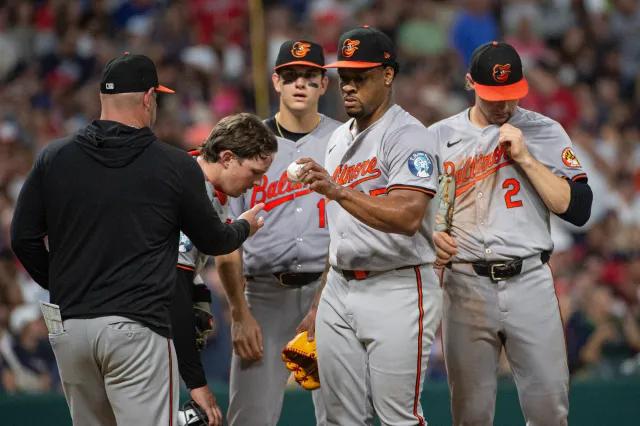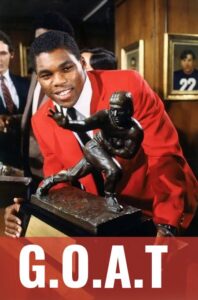
The 2025 Colorado Rockies’ 6-33 start to the season has drawn significant attention for its historical significance in Major League Baseball. Through the first 39 games, the Rockies have matched the 1988 Baltimore Orioles for the worst start in MLB history over the past 130 years. This staggering record of ineptitude has sent shockwaves through the sports world, raising questions about the team’s management, its players, and the future of the franchise.
To understand the weight of the Rockies’ start, it’s important to look back at the 1988 Baltimore Orioles, who, like the Rockies, struggled mightily through their first 39 games. That season, the Orioles finished with a dismal 54-107 record, marking one of the worst seasons in MLB history. The 1988 season was one of the most challenging in Orioles’ history, and their 6-33 start was a harbinger of what was to come.
What made the Orioles’ start even more alarming was the fact that the team was coming off a 1987 season in which they finished 67-95. While they had no illusions of contending for a World Series title, a start that bad was still an unexpected shock. The roster was filled with struggling players, an inexperienced manager in Cal Ripken Sr., and a front office that was undergoing major changes. The 1988 Orioles were defined by their lack of talent, their poor pitching staff, and their inability to put together any kind of consistent offense. The team’s 6-33 start to the season was a reflection of these larger issues, which were only exacerbated by the organization’s lack of direction.
The Rockies, on the other hand, were a team that entered the 2025 season with a mixed sense of hope and realism. The organization had experienced moderate success over the years, but it had never reached the heights of postseason glory. The Rockies have spent most of their existence as a team that consistently hovers around mediocrity, sometimes flirting with a playoff berth but never quite able to push through. However, the 2025 season promised to be different. Many fans and analysts expected the Rockies to take a step forward. Unfortunately, the 6-33 record reflects the farthest thing from progress.
The Colorado Rockies have long been a team that has struggled to find sustained success in Major League Baseball. Founded in 1993, the Rockies have had their moments, with a few playoff appearances and some strong individual performances. However, they have never been able to establish themselves as a consistent contender in the National League. Over the years, the Rockies have faced challenges unique to their home field, Coors Field, a notorious hitter’s park that has often skewed the team’s performance metrics. Pitchers, in particular, have struggled in the thin air of Denver, making it harder to find consistency on the mound.
The Rockies’ overall history has been marked by frequent rebuilding phases, managerial changes, and a revolving door of players. From the team’s inaugural season in 1993, when they finished third in the National League West, to their more recent struggles, the franchise has often had difficulty maintaining a competitive roster year in and year out. The team has flirted with success a few times in their history, most notably in 2007, when they made it to the World Series, and again in 2018 when they made a wild card appearance.
However, the Rockies have spent much of their existence on the outside looking in when it comes to the postseason. Since their 2007 World Series appearance, the team has only made it to the playoffs once, in 2018, and has failed to build upon that success. The 2025 season is no different. In fact, it may be one of the most disappointing seasons in the history of the franchise.
The current Rockies roster is a mix of aging veterans, promising young players, and some questionable roster decisions. Star players such as Nolan Arenado and Trevor Story, both of whom were integral parts of the team in recent seasons, were traded away in what many saw as a teardown of the roster. The team has struggled to replace those stars, and its pitching staff has been one of the worst in baseball for years. While there are some bright spots in the lineup, including emerging players like Ryan McMahon and Brendan Rodgers, the team has lacked the consistency and depth necessary to win games on a regular basis.
The 2025 season, in particular, has exposed many of the team’s flaws. The offense has been inconsistent, with frequent strikeouts and an inability to drive in runs. The pitching staff has been worse than expected, and while the team’s bullpen has shown some promise, the starting rotation has been a mess. Injuries have also taken a toll, further exacerbating the team’s woes. The Rockies have struggled to compete in the highly competitive National League West, where teams like the Los Angeles Dodgers and the San Francisco Giants have set the bar high.
The question on the minds of many Rockies fans, analysts, and baseball enthusiasts is simple: Why is this happening? How did the Rockies find themselves in such a historically bad position?
One of the key factors has been the team’s inability to build a consistently competitive roster. The Rockies have been stuck in a cycle of mediocrity, making minor tweaks to their roster year after year without ever committing to a true rebuild or a clear long-term strategy. The team’s front office has been criticized for its lack of vision, frequently making decisions that seem to be more reactionary than forward-thinking. This approach has left the Rockies with a roster that is full of holes and lacks the talent to compete at the highest level.
Another significant issue has been the team’s inability to develop pitching. Coors Field, as previously mentioned, presents a unique challenge for pitchers. The thin air and high-altitude environment make it difficult for pitchers to consistently perform at a high level. The Rockies have historically had one of the worst pitching staffs in the league, and 2025 has been no exception. While the team has made efforts to improve its pitching staff in recent years, the results have been underwhelming. The lack of a dominant ace or a reliable bullpen has left the team vulnerable in nearly every game.
Moreover, the Rockies’ inability to develop homegrown talent has hindered their chances of building a sustainable winner. The team has had some success in drafting and developing position players, but its efforts with pitchers have been largely unsuccessful. The franchise has struggled to identify and develop top-tier pitching prospects, and as a result, the team has had to rely on free-agent signings and trade acquisitions to fill gaps in its rotation. While this strategy might work for a short period, it has not led to long-term success.
Finally, a culture of underperformance has plagued the franchise. From top to bottom, the Rockies have struggled to maintain high standards of excellence. Their front office has been criticized for poor decision-making, and the team’s managers have been unable to steer the team out of its prolonged slump. The Rockies have had several managerial changes in recent years, but none have resulted in sustained success. The team’s culture of underachievement has affected player development, and it’s clear that the Rockies have struggled to develop a winning mindset.
As the 2025 season continues, the Rockies will face tough questions about the future of their franchise. The team’s poor start has sparked calls for significant changes within the organization. Some have called for the firing of manager Bud Black, who has been at the helm of the team since 2017, while others have suggested that the front office needs to make more aggressive moves in the trade market to shake up the roster. The Rockies’ lack of success could also lead to changes in player development and scouting, as the organization will need to identify and nurture talent that can help the team return to competitive form.
One thing is clear: the Rockies will need to undergo significant changes if they are to avoid a decade of continued mediocrity. Whether those changes come through a complete rebuild, a change in leadership, or an overhaul of the team’s approach to pitching and player development, the franchise must act quickly to prevent this disastrous season from becoming the norm.
The road ahead will be a long one, but the Rockies can take solace in the fact that they are not the first team to experience a historically bad start to the season. The 1988 Orioles, while remembered for their poor performance, eventually rebounded with strong drafts and a commitment to rebuilding. The Rockies have similar opportunities to improve, but they must learn from their mistakes, adopt a new strategy, and rebuild their culture if they hope to ever compete for a playoff spot again.
In the coming weeks and months, we may see the Rockies make tough decisions, trade away veterans, and potentially even commit to a multi-year rebuild. What happens next will determine the future of the franchise and whether the 2025 season will be an anomaly or the beginning of a much larger problem. The Rockies’ 6-33 start is certainly disappointing, but it could also serve as the wake-up call the organization needs to finally make meaningful changes and turn the franchise around.





